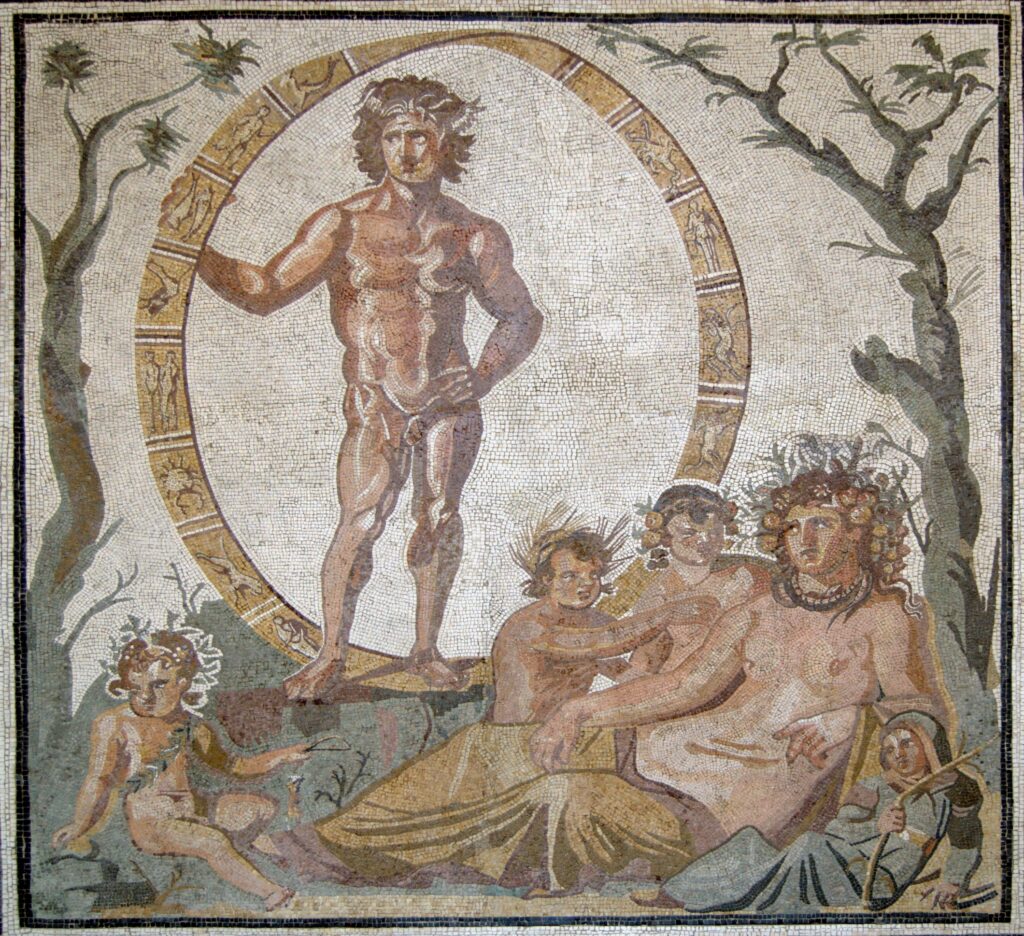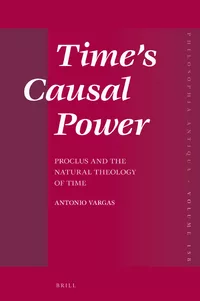
Is the fabric of time, the history of the world, the work of but one Lord? Or is it perhaps the work of Three Fates? Or maybe the Seven Planets and their sister stars are its authors? In Proclus’ theology, there is in fact not a single order of gods almost that does not make a contribution to the creation of time. In this course, I am going to go through the many levels of being and their gods and how they are necessary for the existence of temporal processes. One of my concerns is simply to flesh out Proclus’theory of time by bringing in more mythological elements, but also I have an eye to the philosophy of astrology specifically: so often one will find simply the seven planets and maybe also the zodiac praised as gods in connection with astrology, but Proclus lets us see a much bigger picture of time’s causes.

This course is a continuation of two previous courses:
Time and the Gods – A Course in Platonist Philosophy, which was an introduction to Proclus’ philosophy of time based on my book “Time’s Causal Power: Proclus and the Natural Theology of Time” (Brill, 2021), but which went beyond it in its speculative nature and its entering into dialogue with contemporary philosophies, particularly the Kantian and Phenomenological traditions. Both my book and that course left unresolved the paradox decribed above: on the one hand, for Proclus, time is a uniform flow capable of measuring all things, but on the other it is qualitatively differentiated into distinct kairoi, opportune moments. How can it be both uniform and diverse?
This tension was dealt with in my subsequent course: Time and the Gods II: The Common Root of Kairos and Chronos. Drawing on the last chapter of my unpublished dissertation, I presented an argument that the differentiated and uniform quality of time could ultimately be understood as compatible for Proclus, since the flow of time is a continuous cognition of Form-Numbers, which qua Numbers, are uniform, yet qua Forms are distinct and differentiated.
Although this course is a continuation of those courses, it is not necessary to have watched them to follow this one, as I will recapitulate the necessary material. Whereas those lessons were based on my published book, so there will hardly be any overlap with my published work. It will also continue the speculative bent of the last course.
This course will take place over seven classes on seven weekends in April-July 2025. The classes will be synchronous classes over zoom and will be recorded and made available for the students who wish to go over the material or who were not able to attend. Students will have access not only to recordings of the classes, but also to additional texts for those who wish to read further on their own. These will all be made available in a google drive. Furthermore, for the duration of the course, both in and outside of class, I will be available to answer any questions or comments and also to give feedback on short texts written by students on the subject.
The course will cost R$ 600,00, which will be payable via bank transfer or PayPal. For those paying in dollars and through PayPal this should come to a little over US$ 120,00, given the current exchange rate and the need to cover the PayPal transfer fee. For those interested in also acquiring access to the Google drive of one or both of the previous courses and theyre recorded lessons the cost will be an additional R$ 250,00 per course, which should come to about US$ 50,00 per course.
Here is a short description of each class:
Day One: Introduction to the Nameless Gods
Before I go through the many gods that constitute time, I wantto deal with the big issues this study implies: how can we know there are gods at all? How do we know anything about them? Can we only know them through religious traditions or can reason alone lead us to the gods? This is something of a battlefield, with loud monotheists of the Logos on one end and fideist traditionalists of many traditions on the other, and many other parties shooting across the field. I’m going to introduce the notion of nameless Gods which I beleive can help us out to answer many objections that might occur during the study. Indeed, the great Gods of Time are like the Sun: we knew them before we ever heard their names.
Second Day: The Gods of Presence: the Horizon, Absolute Presence, the Living Being
We start off with Gods that are not involved in the constitution of time as such, but of everything: the gods that produce being, i.e., presence itself. These are who Proclus categorized as the “theoi noetoi” and whom Parmenides reached in his revelation beyond the gates of night and day. We wil talk about Eudoro de Sousa’s phenomenology of the horizon, the god Okeanos, Aiwn and Phanes, Plato’s true Living Being or Animal and more.
Third Day: The Gods of Providence: From Number to Time itself
After the gods that constitute anything insofar as it is real, we turn to those who articulate the very notion of providence, of a prior knowledge of things that organizes them. Time itself is such a god, but it is one of the last such gods, which begin with those that create Number itself and include the all important Demiurge, or Engineer of the Cosmos.
Fourth Day: The Central Gods of the World: The Heaven, the Earth and the Sun.
Having established the framework that allows Time as a providential ordering of processes to exist, we start to look at the Gods that are responsible for its concrete articulation. Here we encounter the Sun, called by Proclus “the time of time” and the Earth “oldest of all the gods” and Heaven itself, the spouse of the Earth.
Fifth Day: The Many Gods of the World: The Planets and the Stars
No course on the Gods of Time would be complete without the rulers of the world, the cosmokratores, the planets and the stars. They are the original homes of souls, the celestial academies run by the many philosopher-kings and their auxiliaries. Here we will meet Venus and Mercury that always accompany the Sun, and the Moon, another Earth according to the Orphic saying, and Jupiter and Saturn. Also we will see how different signs of the zodiac are distributed to different gods and the nature of “allotment” in general.
Sixth Day: The Gods of the Divided Earth: The Day and the Night, the Seasons, and the Local Gods
After the Gods of the World, we turn to those responsible for the divided earth: the seasons that determine north and south, and the day and night who whold the bariires of east and west for every being on earth. We will also consider the local gods of peoples and cities, which establish calendars and festival cycles.
Seventh Day: The Fates and the Heroes
Last but not least we will deal with the contribution to time made by the three Fates and the classes of daimones, angels, daimones proper and heroes. This will also connect with the question of what moral demands the Gods of Time make on us.